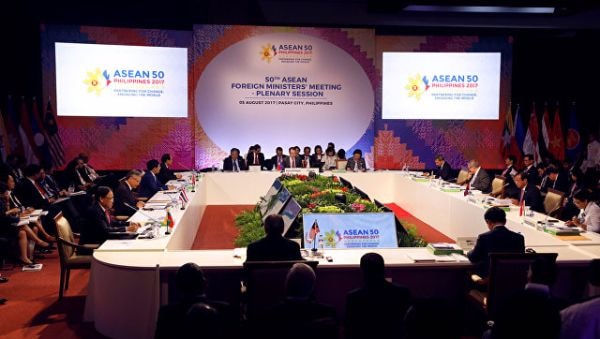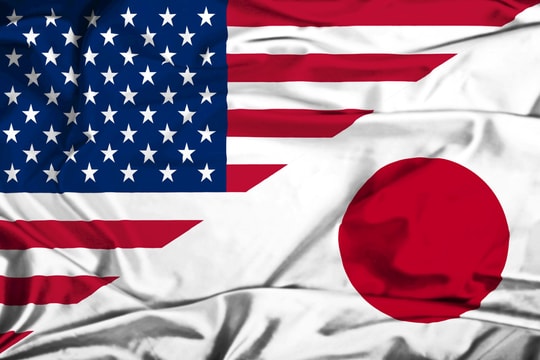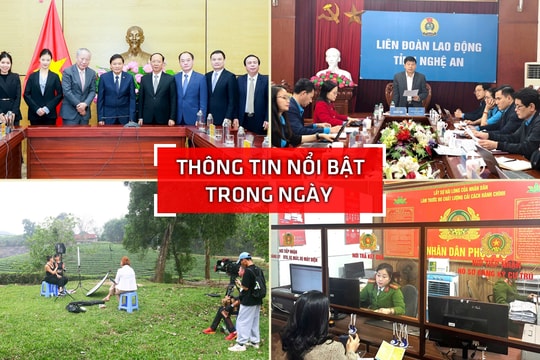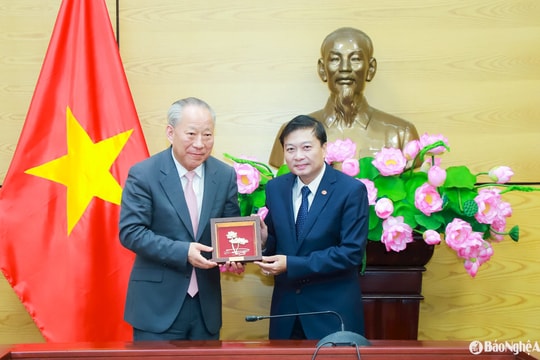America gradually 'drops' the Pacific Ocean into China's hands
(Baonghean.vn) - China and the US are important "guests" in Asia's foreign policy. At the 50th ASEAN Foreign Ministers' Meeting (AMM50) recently held in Manila, the Philippines, both China and the US had a secret competition. Surprisingly, the advantage seems to be leaning towards China. What is the reason that the US has gradually lost its position in this region?
 |
| The 50th ASEAN Foreign Ministers' Meeting. Photo: Reuters |
As we know, AMM50 is a meeting place for Foreign Ministers of ASEAN member countries to discuss issues related to the region. Then, we start to organize individual or group dialogues with major partners from other regions such as: Russia, China, the US and other countries.
This shows that ASEAN wants to clearly demonstrate that the main subject of the Conference is the interests of member countries, and to propose practical solutions in foreign policy and national security and defense.
The highlight of AMM50 is its strong and very clear stance regarding the East Sea issue, emphasizing the importance of “non-militarization and restraint” in carrying out activities that may further complicate the situation.
Grasping the "key", in Manila, Chinese diplomats established a joint statement with ASEAN, proposing a code of conduct in disputed waters, built on the basis of the parties' behavior - not making noise, and continuing to cooperate with each other.
As for the US, as before, it did not make any proposals to ASEAN countries or clearly express its strategic views on the Pacific, other than "general statements" that it would support countries in the worst case of conflict.
 |
| Chinese Foreign Minister Wang Yi at a working session with representatives of ASEAN countries. Photo: Ria Novosti |
In addition to the East Sea issue, ASEAN countries also expressed concern about the increasing tension on the Korean peninsula, as well as dealing with terrorism and extreme violence.
According to the Washington Post, Secretary of State Rex Tillerson led the US delegation to attend AMM50. Here, Secretary of State Tillerson made many efforts to mobilize ASEAN countries to participate in the campaign against the nuclear program in North Korea and called for policies to isolate this country. But these efforts of the US were "tactfully rejected" by the participating countries.
Meanwhile, the most talked about figure was Chinese Foreign Minister Wang Yi. On the one hand, Mr. Wang condemned North Korea and affirmed that China supports the UN sanctions against North Korea.
On the other hand, the Minister gave information about the general agreement between Beijing and Moscow, according to which a "double freeze" will be launched if there is any missile launch or nuclear test in North Korea, and the US and South Korea simultaneously conduct large-scale military exercises.
By doing so, Beijing has shown Washington its answer when US President Donald Trump repeatedly asked Beijing to put pressure on Pyongyang. However, the US immediately expressed its disagreement with the "double freeze" strategy and called it "unacceptable" because it puts North Korea and the US "on the same level". Meanwhile, the US has long been too familiar with the classic "inevitable one country is isolated" reaction.
 |
| US Secretary of State Rex Tillerson speaks in Manila. Photo: Reuters |
Obviously, compared to the US, China has known how to "share common problems" of ASEAN countries. This is not beyond the idea of creating an "Asia for the people of Asia" - a core idea in China's Asia-Pacific dream, calling on Asian countries and people to solve their own problems instead of outside intervention.
In fact, China is the leading trade partner of the ASEAN region, confidently asserting that many countries want to "be in the same boat with a strongly developing China". This, once again, makes the US "overtaken" and "restless".
Thus, the US has reason to worry about its position in the Pacific, because China's increasing leading role in the region will weaken US influence there.
For the US, ceding the leading position to China is "almost impossible". But perhaps, to change the situation, it will require the US to change the entire way of thinking and acting in the region.
America and Russia
(According to Ria Novosti)
| RELATED NEWS |
|---|








